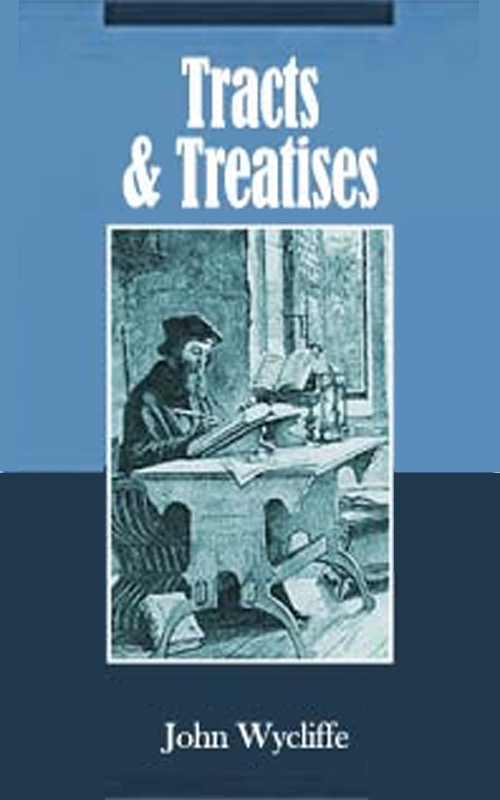 by John Wycliffe
by John Wycliffe
in epub & .pdf formats
Modernized, formatted, corrected, and annotated (in blue) by William H. Gross www.onthewing.org
Modernization is based on Middle-English meanings, which was the vocabulary of Chaucer. Wycliffe's translation of the Latin Vulgate is historically significant. Therefore, although modernized in part, his wording has been retained as much as possible, rather than substituting a current version. A biographical notice of Tyndale has this to say about Wycliffe's previous translation (from the Parker Society's Tyndale, Doctrinal Treatises, 1848): "Wicliffe's version also had this considerable defect, that whereas there was no one in Oxford in his days who knew anything of Greek, he could only translate from the Latin Vulgate; and consequently he had incorporated all of its erroneous renderings into his text. But besides this, the unsettled state of language, in our illiterate nation, had already made Wicliffe's English among the things which were passing away. 'The ghiftis and the clepyng of God ben without forthynkyng,' or 'He made us saaf bi waisshchyng of aghenbigetyng and aghen newing,' (Wicliffe's version of Rom. 11.29, and Tit. 3.5), would scarcely have been intelligible to Tyndale's contemporaries, and would have sounded painfully uncouth to the next generation."
In this modernized edition, [brackets] indicate additions to the text to aid understanding. But in many places, sentence structure has been substantially altered to preserve the intended meaning; a "small fix" wasn't possible. In other places, the passive voice has been changed to active for clarity. Original page numbers are retained for citation purposes. Unreferenced pronouns and implied words are made explicit. Where God is referenced ambiguously, the pronouns are capitalized. Footnotes beginning "Originally," provide Wycliffe's wording; though some of his more interesting wording is retained in the text, and explained in the note. Robert Vaughan's footnotes defining obscure words have been brought into the text for easier reading. Other words that were understood in 1845, but less so today, or whose meaning has changed, have been modernized or annotated. Verse numbering hadn't been established in Wycliffe's lifetime. Therefore they have been added to the text where he used only chapter numbers. THE ORIGINAL EDITOR, Robert Vaughan (1795–1868), was an English Congregationalist minister, an academic, and a college head and writer. He came from a Welsh background. He was Professor of History in the London University, and then President of the Independent College, Manchester. He founded, and for a time edited, the British Quarterly.
OF INTEREST: About 1227 A.D., the division of the Bible into chapters was developed by Stephen Langton, an Archbishop of Canterbury, The Wycliffe English Bible of 1382 was the first Bible to use this division. In 1448, the Old Testament was divided into verses by a Jewish rabbi named Nathan. In 1555, Robert Estienne (Robert Stephanus, or Stephens), a printer from Paris, was the first to divide the New Testament into numbered verses. He used Nathan's verse divisions for the Old Testament. Those chapter and verse divisions have been employed in nearly all Bible versions since. — William Gross
